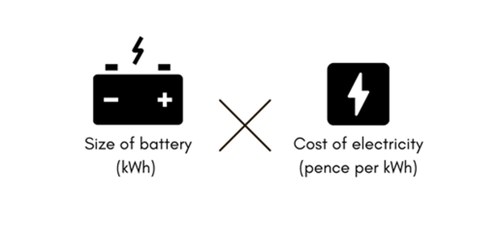The Cost of Charging an Electric Vehicle
You've just purchased an EV because of the fantastically low cost of charging. In this article, we're going to discuss factors that impact how much it costs to charge your EV.

Public Charging
The UK has several networks of public chargers owned by different companies, meaning that the price of using public charging points is not the same all across the board.
We would recommend that you use a subscription service if you're making long journeys regularly.
Rapid Charging
Rapid chargers are usually found at motorway service stations for a quick top-up. This comes at an average price of £6.50 which will take 30 minutes for a 100-mile charge.
Workplaces are now implementing workplace charging points for their employees and will let them use them for free while they're at work.